“Flaky breakthroughs” pervade inner work — but almost no one tracks them
2026 Feb 10: This post has been updated for accuracy. Has someone you know ever had a “breakthrough”… only to be no different a few weeks later? Just as “flaky breakthroughs” are pervasive with psychedelics, they’re also pervasive with coaching, retreats, meditation, and bodywork. Flaky breakthroughs can set people back years. Some give up believing more is possible. This investigation discovered almost no inner work practitioners in my network track if they’re facilitating flaky breakthroughs or sustained life improvement. Discovering practitioners ignore outcomes Earlier this year, I attempted to make a list of the best practitioners on my area of twitter. 20+ coaches reached out, and I asked each to share the best evidence that they had helped coachees improve their lives. I was hoping for stories like: “worked with a man who had never asked women out. hundreds of hours of IFS and meditation didn’t do it for him. after our first session, he asked out multiple easily… several months later he was in a happy relationship.” Instead, the coaches shared testimonials like: > The session I just had was really nice. I felt a big release near the end! and: > They have such a kind presence. Best coach I’ve ever worked with! Evidence of life improvement was almost not referenced. I discovered that even well-respected practitioners don’t track results. For example, a well-known coach posted a video stating he’d discovered “how procrastination can completely dissolve” for a man. When the coach was asked how this claim had been verified (did the effect last? did he ever launch the site he was procrastinating on?), he explained: “I do not follow up on folks after coaching as that would feel intrusive to me.” Several months later I looked the man up and he apparently hadn’t launched anything. In another case, a popular inner work retreat calls itself “data-driven” and “life-changing”… but doesn’t track whether alumnis’ lives improve. When an alumnus of the retreat
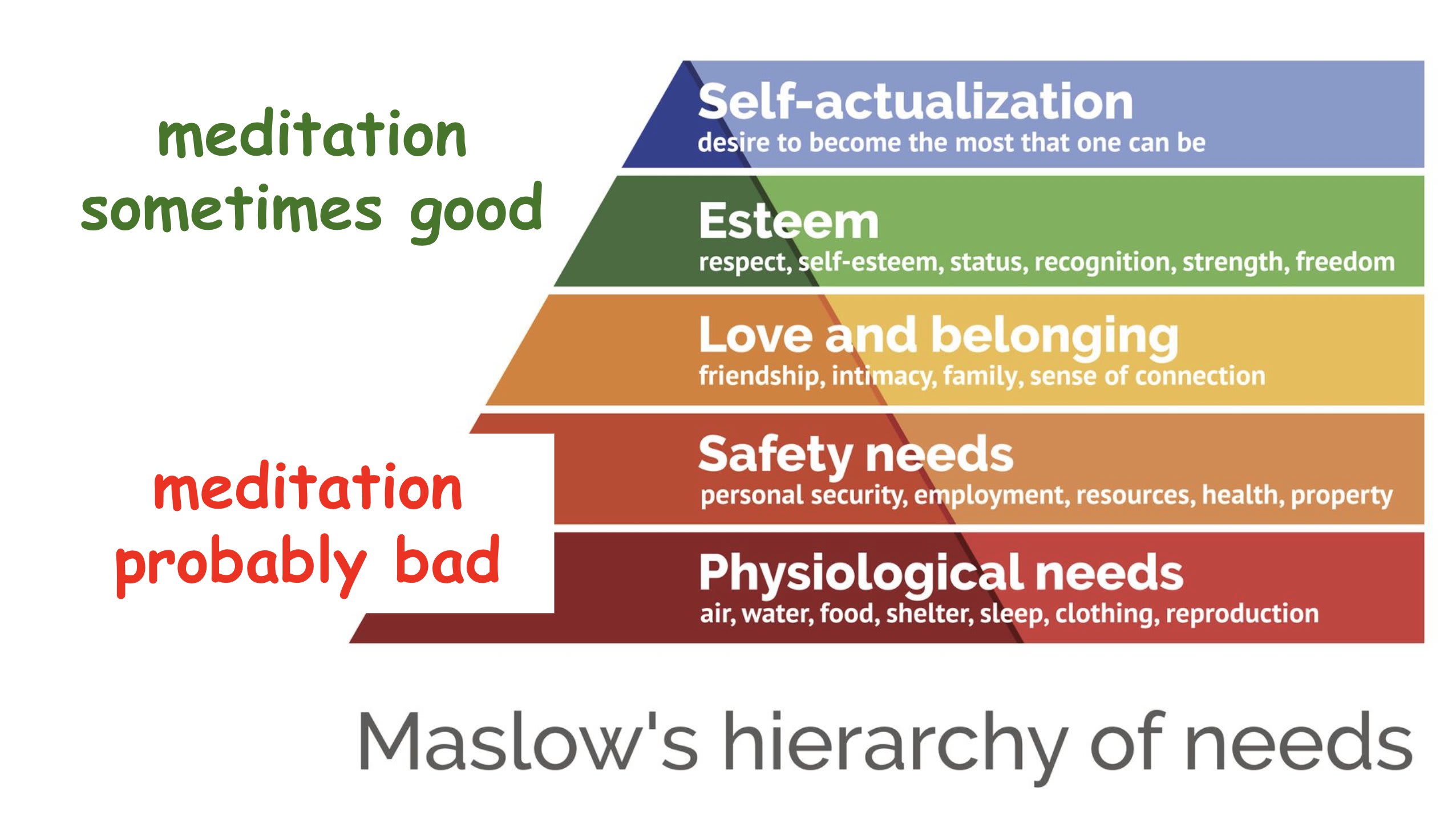
![Ulisse Mini @MiniUlisse
after my @[redacted] retreat I was like "I'm never going to be depressed again!" then proceeded to get depressed again because I was no longer meditating 8hrs/day isolated from everything in my life, lol
2:42 PM · May 10, 2025 · 23.9K Views](https://res.cloudinary.com/lesswrong-2-0/image/upload/f_auto,q_auto/v1/mirroredImages/bqPY63oKb8KZ4x4YX/phlmn9nicco4tvs3rocs)
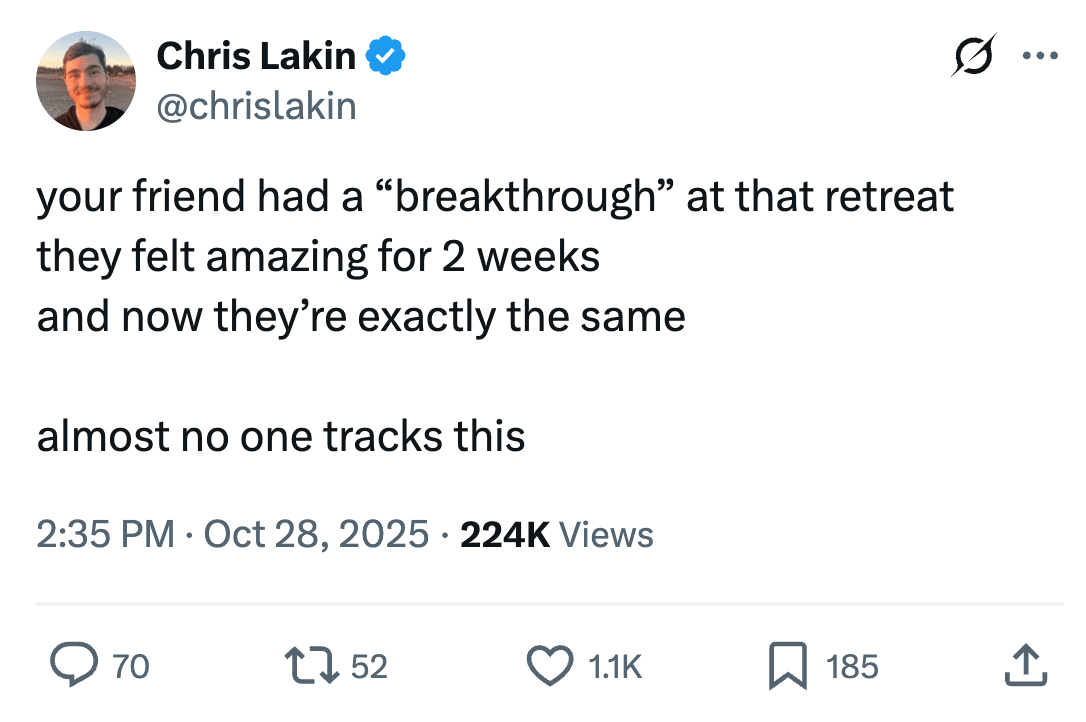
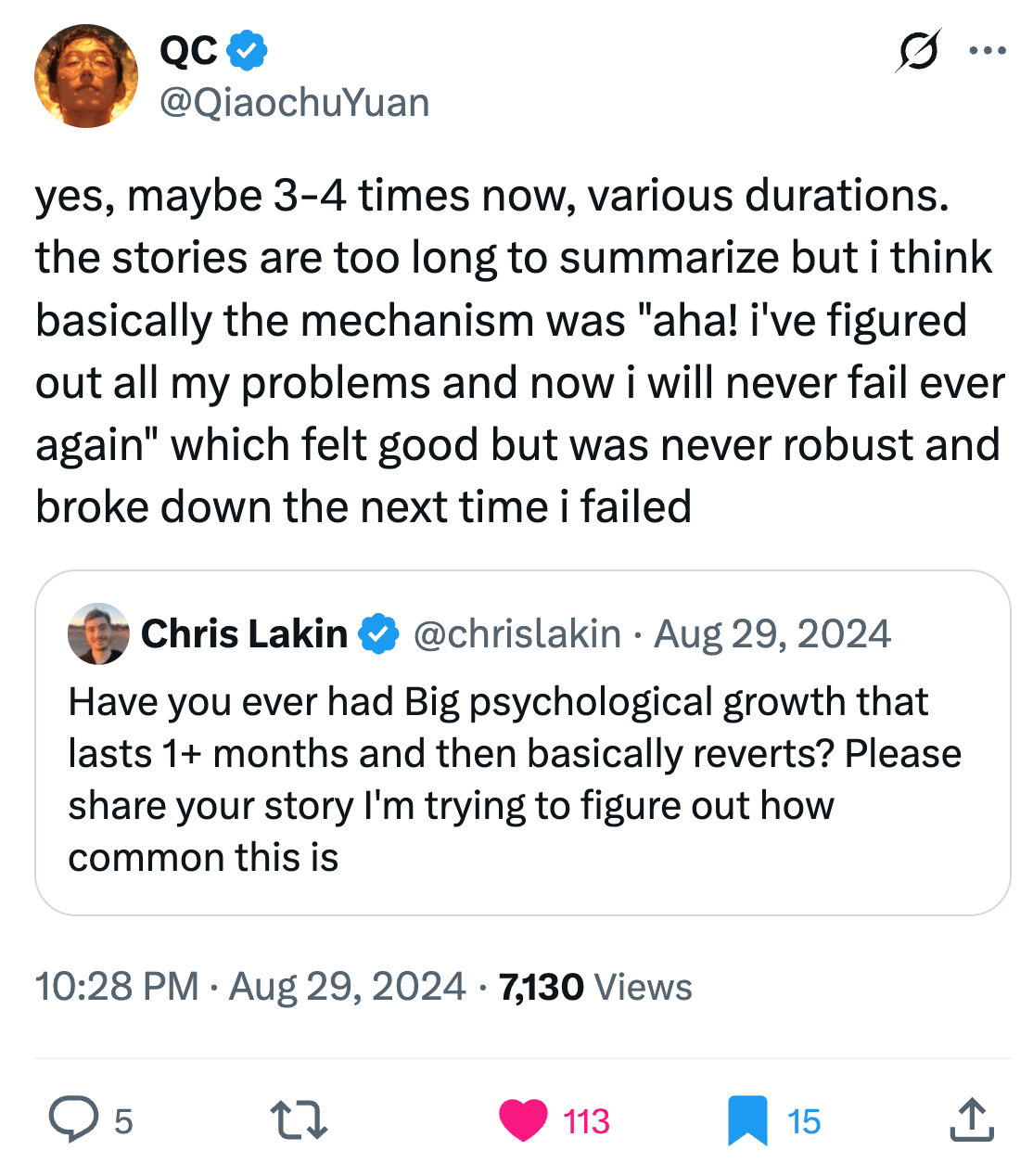
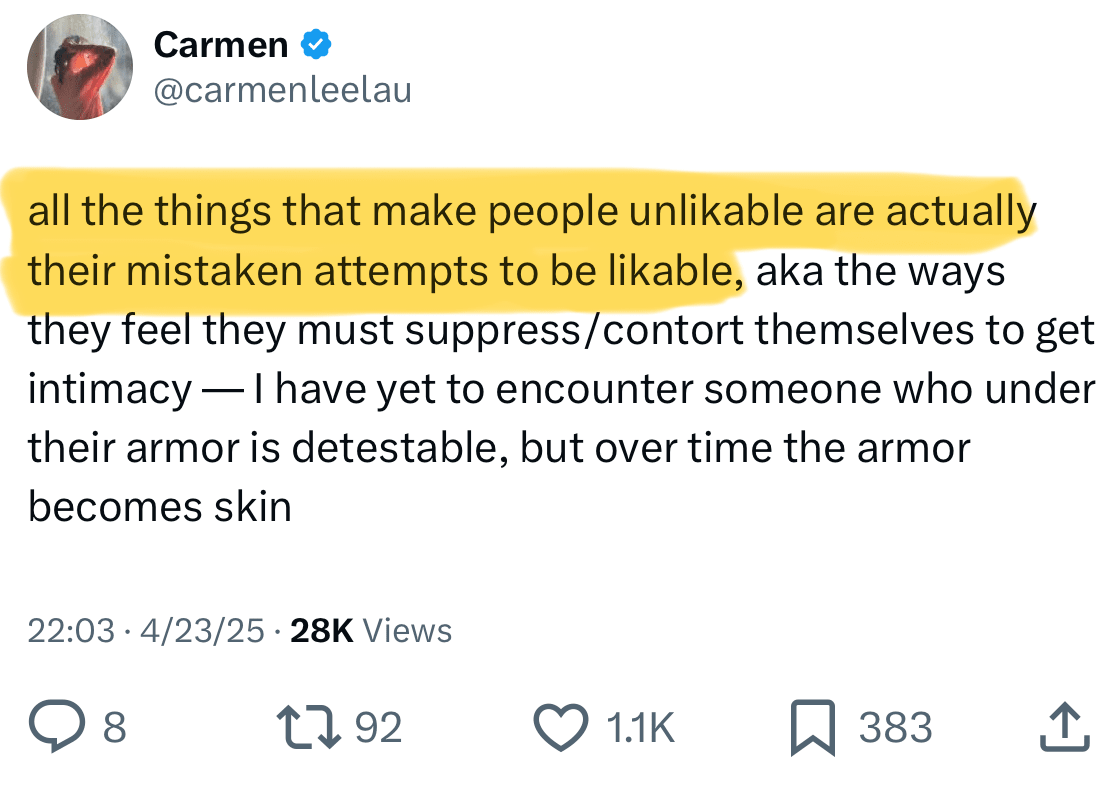
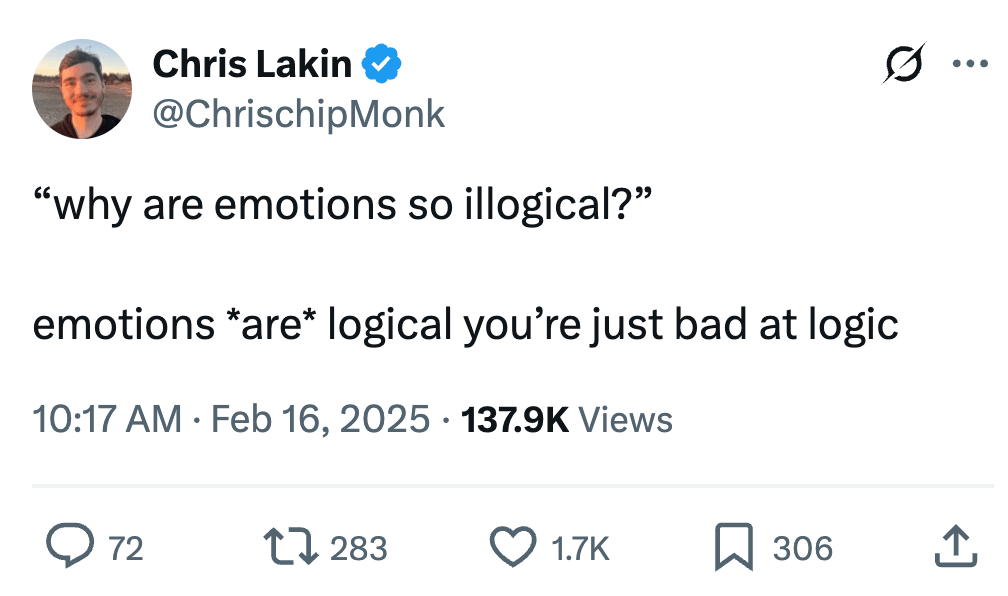

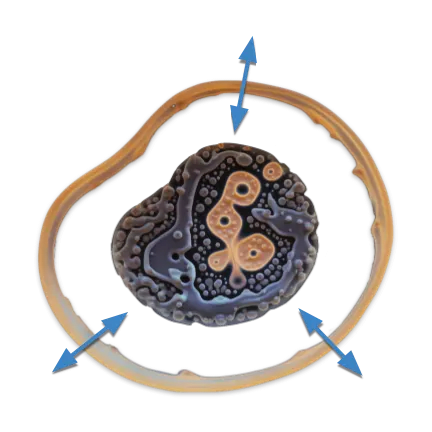
thank you for saying this